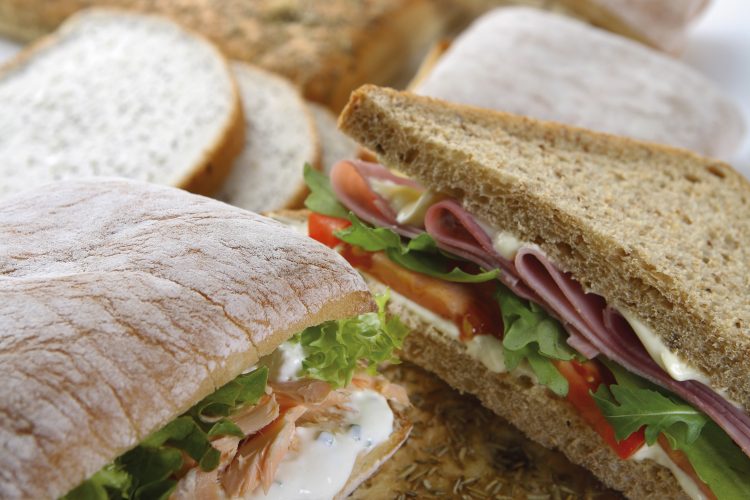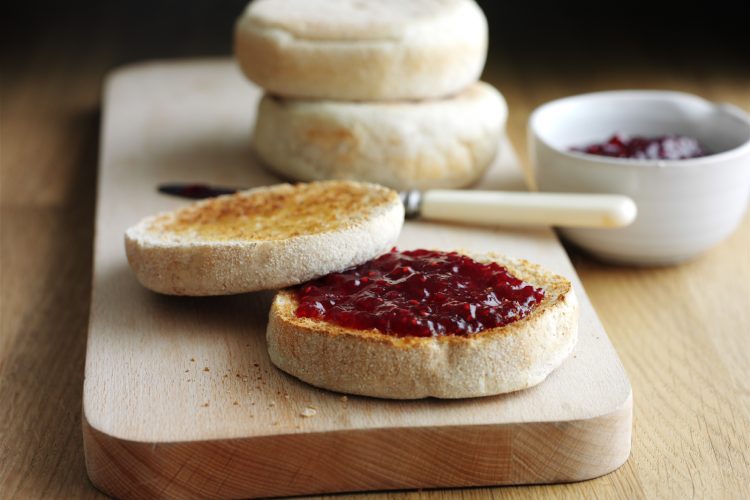The Federation of Bakers on tackling the biggest challenges in bakery
- Like
- Digg
- Del
- Tumblr
- VKontakte
- Buffer
- Love This
- Odnoklassniki
- Meneame
- Blogger
- Amazon
- Yahoo Mail
- Gmail
- AOL
- Newsvine
- HackerNews
- Evernote
- MySpace
- Mail.ru
- Viadeo
- Line
- Comments
- Yummly
- SMS
- Viber
- Telegram
- Subscribe
- Skype
- Facebook Messenger
- Kakao
- LiveJournal
- Yammer
- Edgar
- Fintel
- Mix
- Instapaper
- Copy Link
Posted: 23 August 2019 | Gordon Polson | No comments yet
Gordon Polson, Chief Executive of the Federation of Bakers, outlines the association’s responsibilities and how it is addressing some of the industry’s most prevalent issues.


The Federation of Bakers (FOB) represents the interests of the UK’s largest baking companies, who manufacture sliced and wrapped bread, bakery snacks and other baked products. The federation has nine member companies who collectively run 34 bakeries in the UK, as well as 24 associate members, all of whom supply the bakery sector. We aim to represent the interests of all our members and make a real difference to their bottom lines, from promoting their successes and products to defending the wider industry with a comprehensive issues management programme.
The bakery category
The UK bread and morning goods category is a £3.8 billion industry that grows at 2.2 percent in value sales. However, it is experiencing small volume declines due to individual shoppers buying less frequently and in smaller quantities. Sector growth is driven through higher prices due to a shift towards more premium products and a wider range of bakery products in addition to bread.
As a highly traded commodity, inflation in wheat due to economic uncertainties and poor harvest has also contributed to increased prices for manufacturers and consumers alike. Issues such as the reduction of sugar in morning goods, the regulation of acrylamide in food, food waste reduction, Government consultations on a possible plastics packaging tax, and Brexit have all impacted the industry. The federation closely monitors and assesses both the challenges and opportunities ahead, sharing all relevant information and practical recommendations with its members.
While the looming economic and political uncertainties have proven the biggest challenges over the last 12 months, consumer trends remain an important factor in the growth of the industry. Health and well-being as a trend continues to accelerate as a key driver for consumer purchase. The growing demand for more natural products highlights the diverse and often complex issues facing the industry, including salt reduction, which our members and the wider industry should be aware of.


Challenges and solutions
Sugar and calorie reduction
Public Health England (PHE) has published, as part of its ambition to reduce obesity in children, a series of draft proposals for calorie reduction in a range of products including bread with additions. PHE is due to share an update this year on how companies are progressing toward the goal of reducing sugar in products by five percent.
Salt reduction
Our members have worked hard over many years to reduce salt in their products and have successfully implemented reductions to meet the 2017 targets set by PHE. The current levels of sodium in federation members’ products is 0.38g per 100g bread (ie, 0.9g salt). We are currently waiting for an announcement from the Government regarding the latest salt reduction ambition.
The federation continues to collect annual data from its members, which it shares with PHE. Industry data shows that salt levels have been reduced by more than 40 percent among members since the mid-1980s, and 27 percent since formal targets were introduced in 2005. However, as an essential ingredient in bread – both technically and in terms of flavour – there are still significant technical barriers that need to be overcome.
Acrylamide reduction
The EU acrylamide mitigation regulation has been introduced across many food groups, including bread, and is therefore something that all bakeries across Europe must be aware of and adhere to. Individual companies are now required to demonstrate what they are doing to mitigate this naturally occurring chemical substance in their products. The federation will therefore continue to collect further data from members over the next 12 months, as well as monitor developments in Europe.
Plastic/sustainable packaging
Defra has published a raft of new consultations on a range of environmental issues, including proposals to implement a plastics tax on any plastic wrappers that do not contain 30 percent recycled materials, which would come into force in 2026. This is a challenging food material in the food industry. The federation has been investigating ways to improve existing provisions for recycling bread wrappers through major supermarket sites, to ensure the industry is meeting the expectations of both regulators and consumers.


The UK bread and morning goods category is a £3.8bn industry.
Brexit
The federation also continues to closely monitor the fast-moving developments and emerging challenges and opportunities that Brexit presents for the industry. It works with the Food & Drink Federation (FDF) on many Brexit-related issues and will be keeping members abreast of the fast-changing situation.
Plastic waste reduction
Reducing our collective use and reliance on plastic is an ambition that we continue to monitor closely. The federation is currently looking at ways to improve existing provisions for recycling bread wrappers through major supermarket sites, as the industry strives to meet the expectations of both regulators and consumers. Similarly, food waste remains a major issue and we work closely with WRAP (the Waste and Resources Action Programme) to keep abreast of developments and the latest regulations and reports on the subject, giving feedback to our members. WRAP has produced guidance on reducing waste in bread and bakery products.
Food waste
The FOB has been working with WRAP to encourage consumers to reduce bread waste as part of their wider Love Food Hate Waste initiative. WRAP has produced a new consumer guidance booklet on how best to store bread and bakery products, and the FOB factsheet on Keeping Bread Fresh has been revised.
Folic acid consultation
The FOB welcomed the Government’s announcement in October 2018 that it will consult on the mandatory fortification of flour with folic acid in a bid to tackle foetal abnormalities. Members have made it clear that the decision to fortify is a public health issue and a decision for Government. They have also expressed concerns relating to costs, public acceptability and supply chain issues. The federation is committed to responding positively to the call for a discussion on folic acid fortification, but feels that any decision made should be a medical one and not one made solely by the industry. A consultation with the Department of Health and Social Care (DHSC) and Defra is currently taking place and will close on 9 September 2019.
Looking forward
While growth continues across all sectors, the largest sector, ‘Traditional Ambient Bread’, is growing at the slowest rate. This is due to volume declines of nearly two percent, as consumers switch away from traditional bread towards more varied baked goods, including speciality bread and smaller pack/loaf sizes. Currently, the smallest sector, ‘Speciality bread’, is growing the fastest in value and volume terms, driven particularly through ciabatta.
Overall, the outlook for bread and bakery remains optimistic, albeit one of change. The industry is demonstrating that it can adapt to meet the ever more demanding consumer. Bread and bakery are staple products; it is up to the industry to ensure it remains that way by giving consumers what they want. With this in mind, bakers and bakery manufacturers must continue to focus on product development and innovation across a wide range of sub categories, in order to secure the future growth of the category.
About the author
Gordon Polson took over as Chief Executive of the FOB in 2005, following over 25 years’ experience of managing trade associations in a range of sectors from insurance to steel. Since joining the federation, Gordon has been instrumental in focusing on the issues that impact plant bakers. This includes consumer health issues, European legislation and public relations.
Issue
Related topics
Environment, Food Waste, Health & Nutrition, Ingredients, Packaging & Labelling, Salt, Trade & Economy
Related organisations
DEFRA, Department of Health and Social Care, Food & Drink Federation, Public Health England, The Federation of Bakers, Waste and Resources Action Programme









